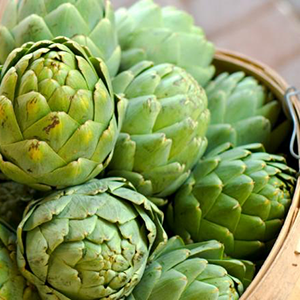La hoja de alcachofa, derivada de la planta Cynara scolymus, ofrece innumerables beneficios para la salud atribuibles a su rica composición de compuestos bioactivos. Principalmente, la hoja de alcachofa es famosa por sus potentes propiedades antioxidantes, que ayudan a combatir el estrés oxidativo y reducir la inflamación en el cuerpo. Estos efectos se deben en gran medida a las altas concentraciones de flavonoides, particularmente cinarina y luteolina, que desempeñan un papel crucial en la neutralización de los radicales libres. Además, se ha descubierto que la hoja de alcachofa mejora la salud digestiva al estimular el flujo de bilis, ayudando así en la digestión y absorción de grasas. Este beneficio digestivo se complementa con su capacidad para aliviar los síntomas de la indigestión, como la hinchazón y el malestar abdominal.
Además, la hoja de alcachofa contribuye a la salud cardiovascular. El consumo regular se ha relacionado con niveles reducidos de colesterol. Esto se logra mediante la inhibición de la HMG-CoA reductasa, una enzima involucrada en la síntesis de colesterol, y la mejora de la excreción de colesterol. En consecuencia, estos mecanismos respaldan la salud general del corazón al reducir potencialmente el riesgo de aterosclerosis y otras enfermedades cardiovasculares. Además, los extractos de hojas de alcachofa han demostrado potencial para regular la presión arterial, gracias a su efecto diurético, que ayuda a mantener el equilibrio de líquidos y reducir la presión arterial.
Específicamente para la salud del hígado, la hoja de alcachofa ofrece importantes beneficios protectores y regenerativos. El hígado, al ser un órgano crucial para la desintoxicación y el metabolismo, se beneficia enormemente de las propiedades hepatoprotectoras de la hoja de alcachofa. La cinarina, uno de los principales compuestos activos de la hoja de alcachofa, mejora la producción y el flujo de bilis, facilitando la eliminación eficiente de toxinas del hígado. Este efecto desintoxicante es crucial para prevenir la acumulación de sustancias nocivas que pueden dañar las células del hígado. Además, se ha demostrado que la hoja de alcachofa reduce los niveles de enzimas hepáticas en personas con enfermedad del hígado graso no alcohólico (NAFLD), lo que indica su papel en la mejora de la función hepática y la reducción de la inflamación.
Además, la hoja de alcachofa exhibe propiedades antifibróticas, que ayudan en prevenir y controlar la fibrosis hepática, una afección caracterizada por la acumulación excesiva de proteínas de la matriz extracelular que puede provocar cirrosis. Al mitigar el estrés oxidativo e inhibir la proliferación de células estrelladas hepáticas, la hoja de alcachofa contribuye a mantener la integridad estructural y funcional del hígado. Estos efectos combinados subrayan la importancia de la hoja de alcachofa como agente terapéutico natural para promover la salud del hígado y prevenir enfermedades relacionadas con el hígado.
